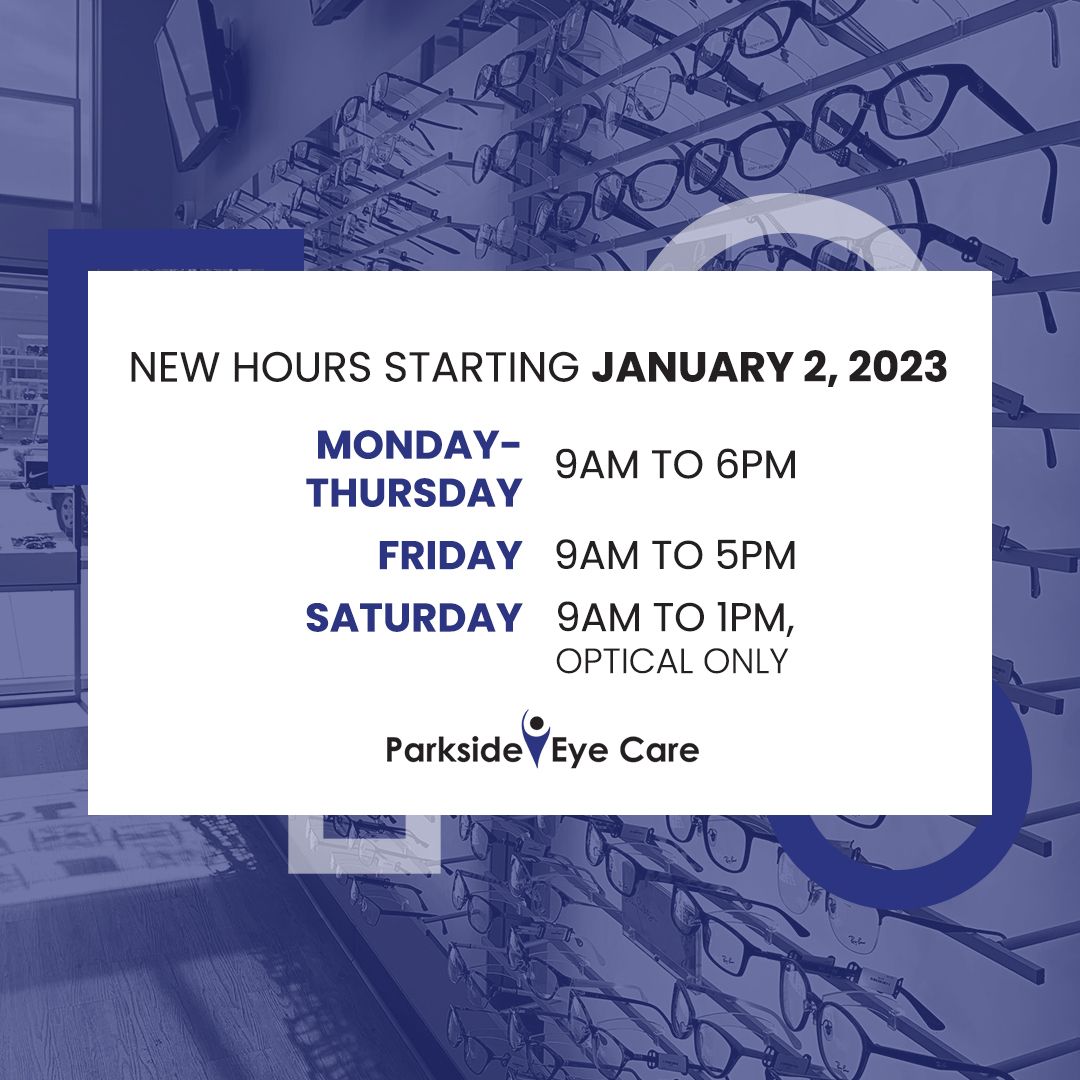
Diabetes can affect many parts of your body, including your eyes. One of the most common complications of diabetes is diabetic retinopathy, a condition that affects the blood vessels in the retina and can lead to vision loss if left untreated. At Parkside Eye Care, we’re committed to helping you protect your vision and maintain your overall eye health.
What is Diabetic Retinopathy?
Diabetic retinopathy occurs when high blood sugar levels damage the tiny blood vessels in the retina, the light-sensitive tissue at the back of your eye. Over time, this damage can cause these vessels to swell, leak fluid, or bleed, leading to vision issues. In advanced stages, new, abnormal blood vessels can grow on the retina, further worsening the condition.
The progression of diabetic retinopathy can be divided into four stages:
Mild Nonproliferative Retinopathy: Early-stage swelling in small blood vessels.
Moderate Nonproliferative Retinopathy: Blockages begin to form in the retinal blood vessels.
Severe Nonproliferative Retinopathy: Blockages cut off significant blood supply to the retina.
Proliferative Retinopathy: Advanced stage with abnormal blood vessel growth, increasing the risk of retinal detachment and vision loss.
Common Symptoms of Diabetic Retinopathy
In its early stages, diabetic retinopathy may not present noticeable symptoms, which is why regular eye exams are crucial for early detection. As the condition progresses, you may experience:
Blurred or fluctuating vision
Dark or empty spots in your field of vision
Difficulty seeing at night
Floaters or dark strings in your vision
If you notice any of these symptoms, contact Parkside Eye Care immediately.
The Importance of Early Detection
Early detection is vital for managing diabetic retinopathy and preventing severe vision loss. Regular eye exams allow your optometrist to monitor the health of your retina and identify any changes before they become serious. We use advanced diagnostic tools, such as digital retinal imaging, to detect early signs of diabetic retinopathy.
When caught early, treatments such as laser therapy, anti-VEGF injections, or surgery can effectively slow the progression of the disease and preserve your vision.
Prevention: Protecting Your Eyesight
Preventing diabetic retinopathy starts with managing your overall health. Here are some tips to reduce your risk:
Control Your Blood Sugar: Keeping your blood sugar levels stable can help prevent damage to the retina.
Monitor Blood Pressure and Cholesterol: High blood pressure and cholesterol can worsen diabetic retinopathy. Regular checkups with your primary care provider can help you stay on top of these risk factors.
Quit Smoking: Smoking can increase the risk of diabetic complications, including retinopathy.
Maintain Regular Eye Exams: Schedule comprehensive dilated eye exams annually or as recommended by your eye care provider.
Schedule Your Eye Exam Today
At Parkside Eye Care, we understand the challenges of managing diabetes and its potential impact on your eyes. We are dedicated to providing personalized care, from routine screenings to advanced treatments. Whether you’re newly diagnosed or managing diabetes for years, we’re here to help you protect your eyesight.
If you have diabetes or are at risk, contact Parkside Eye Care to schedule your eye exam and take the first step in safeguarding your vision. Visit our office in Cary, North Carolina, or call (919) 883-9987 to book an appointment today.














